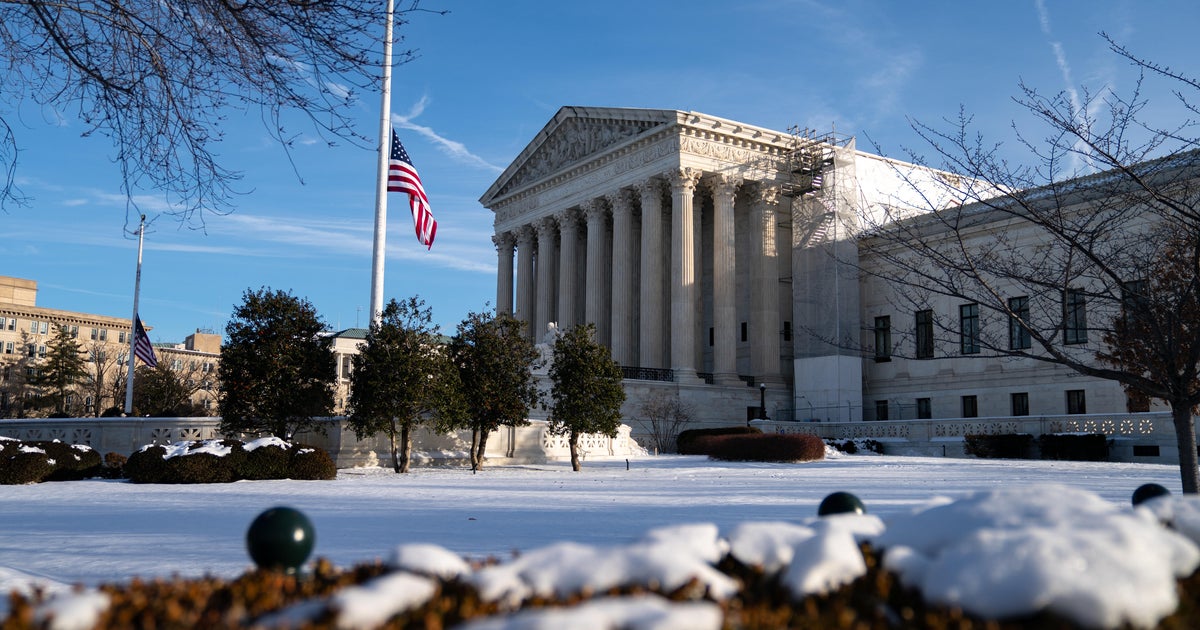Supreme Court Allows Honolulu's Climate Change Lawsuit Against Oil Giants to Proceed
The Supreme Court's decision lets Honolulu sue oil and gas companies for deceptive climate change marketing practices, as similar lawsuits emerge nationwide.
Subscribe to unlock this story
We really don't like cutting you off, but you've reached your monthly limit. At just $5/month, subscriptions are how we keep this project going. Start your free 7-day trial today!
Get Started
As SCOTUS mulled taking on the case, justices asked the Biden administration for input. But the Biden administration suggested it was too soon for SCOTUS review, urging the court to kick the cases back to Hawaii state courts.
Supreme Court lets Hawaii sue oil companies over climate change effects
 ARS Technica·3M·ReliableThis source consistently reports facts with minimal bias, demonstrating high-quality journalism and accuracy.CenterThis outlet is balanced or reflects centrist views.
ARS Technica·3M·ReliableThis source consistently reports facts with minimal bias, demonstrating high-quality journalism and accuracy.CenterThis outlet is balanced or reflects centrist views.
Business interests have been desperately trying to shut down climate change lawsuits that municipalities have been filing in state courts all over the country.
Supreme Court allows Hawaii climate change lawsuit to move forward
 CNBC·3M·ReliableThis source consistently reports facts with minimal bias, demonstrating high-quality journalism and accuracy.CenterThis outlet is balanced or reflects centrist views.
CNBC·3M·ReliableThis source consistently reports facts with minimal bias, demonstrating high-quality journalism and accuracy.CenterThis outlet is balanced or reflects centrist views.
The Hawaii Supreme Court ultimately allowed the lawsuit to proceed, determining that the Clean Air Act displaced federal common law governing suits seeking damages for interstate pollution.
Supreme Court allows Hawaii climate change lawsuits against energy companies to move forward
 CBS News·3M·ReliableThis source consistently reports facts with minimal bias, demonstrating high-quality journalism and accuracy.CenterThis outlet is balanced or reflects centrist views.
CBS News·3M·ReliableThis source consistently reports facts with minimal bias, demonstrating high-quality journalism and accuracy.CenterThis outlet is balanced or reflects centrist views.The order allows the city of Honolulu’s lawsuit against oil and gas companies to proceed.
Supreme Court declines to hear from oil and gas companies trying to block climate change lawsuits
 Associated Press·3M·ReliableThis source consistently reports facts with minimal bias, demonstrating high-quality journalism and accuracy.CenterThis outlet is balanced or reflects centrist views.
Associated Press·3M·ReliableThis source consistently reports facts with minimal bias, demonstrating high-quality journalism and accuracy.CenterThis outlet is balanced or reflects centrist views.The fossil fuel industry said it was critically important for the court to weigh in now before it spends significant resources fighting the suits, which oil companies said are a “serious threat to one of the nation’s most vital industries.”
Supreme Court allows state and local climate suits against oil companies to proceed
 USA TODAY·3M·ReliableThis source consistently reports facts with minimal bias, demonstrating high-quality journalism and accuracy.CenterThis outlet is balanced or reflects centrist views.
USA TODAY·3M·ReliableThis source consistently reports facts with minimal bias, demonstrating high-quality journalism and accuracy.CenterThis outlet is balanced or reflects centrist views.The stakes in this case could not be higher, and the lawsuits present a serious threat to one of the nation’s most vital industries.
Supreme Court Won't Hear Big Oil's Climate Change Appeal
 Newsmax·3M·Mixed ReliableThis source has a mixed track record—sometimes accurate but also prone to bias, sensationalism, or incomplete reporting.RightThis outlet favors right-wing views.
Newsmax·3M·Mixed ReliableThis source has a mixed track record—sometimes accurate but also prone to bias, sensationalism, or incomplete reporting.RightThis outlet favors right-wing views.
Summary
The U.S. Supreme Court has declined to hear appeals from oil and gas companies, allowing Honolulu to pursue a lawsuit claiming these companies misled the public about fossil fuel impacts on climate change. The case focuses on alleged deceptive marketing rather than emissions regulation. The ruling is significant amid a wave of lawsuits from various municipalities aiming to hold the fossil fuel industry accountable for climate-related damages. The Biden administration suggested that more litigation should unfold before federal intervention, marking a key moment in environmental legal battles across the U.S.
Perspectives
No center-leaning sources available for this story.